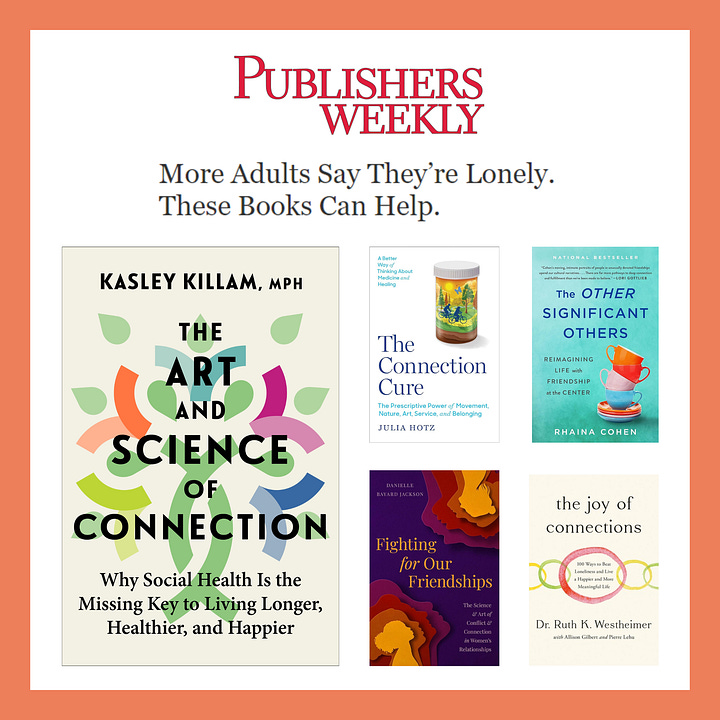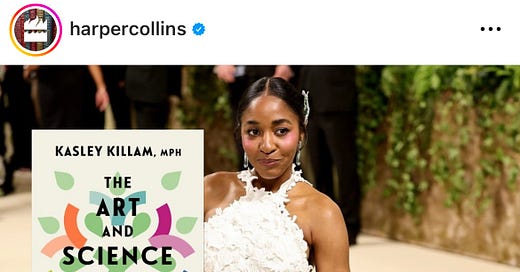Let’s bust a myth: more connection is better. Given the work I do, you might assume I believe this and think being socially healthy means connecting more often.
But I don’t. Definitely not.
Because here’s the truth: not all connection is good connection.
For those of us who are introverts (I see you 🙋♀️), too much socializing is tiring. We need solitude to recharge our batteries, which in turn helps us connect better when we are with people. More connection can backfire if it means not honoring our own needs or depleting our social batteries.
This applies to everyone, not just introverts, in another way: Negative relationships—those that are disrespectful, one-sided, or abusive—are detrimental to our social health. While a certain amount of conflict is normal with family, friends, and coworkers even when the relationship is strong and healthy, that negativity can cross a line.
Here’s a short video of me discussing this:
To draw a parallel between social health and physical health: regular exercise is a vital part of a healthy lifestyle—but more exercise is not always better. In fact, it’s important to let your muscles rest and recover in between reps or workout days. And not every kind of exercise is right for you; if I got up and ran a marathon tomorrow, for example, it would do more damage than good (actually it might kill me 😅).
Being physically fit entails exercising in the amount and ways that suit your body.
Similarly, being socially fit doesn’t mean interacting all the time or with whomever. Instead, social health includes setting boundaries and being selective about who you spend time with. This might look like:
Spending time alone
Letting go of negative relationships
Opting for deep conversation over frequent interaction
I spent years figuring this out, looking for answers in the scientific research and doing a lot of trial-and-error in my personal life. You can skip all that and get straight to the insights you need by reading The Art and Science of Connection. You’ll learn:
The principle of “Quality Over Quantity”—one of 5 key principles I share for living a socially healthy life.
Which of the 4 “Social Health Styles” captures both the amount and type of connection that is fulfilling for you personally.
30+ actionable tips for how to strengthen your social muscles.
And so 👏 much 👏 more! 👏
“As a buttoned-up Brit I thought I would hate this book for its upfront approach to reaching out. I loved it! This inspiring read wakes us up with new concepts—social health, social muscles, social fitness gyms—which may seem strange at first but are profound, practical, and urgently needed by us all.”
—Paul Cann, CEO of the Global Initiative on Loneliness and Connection
Now let’s bust another social health myth: living alone means being lonely.
Not necessarily!
I recently spoke with Yahoo about this for an article they published featuring older adults who are happily aging in place on their own.
“Many people are perfectly content living by themselves; it really comes down to personal preference,” I shared with the reporter. However, “Social isolation is linked to a host of negative health outcomes. So if you live alone, it’s important to be especially intentional about connection. Pay attention to how much interaction you’re getting and put extra effort into cultivating meaningful relationships.”
Check out the full article for practical tips. And while we’re on the topic of loneliness, The Art and Science of Connection was just recommended by Publishers Weekly as a book that can help alongside other complementary titles!


I’d love to know your reflections on the myths that more connection is better and that living alone means being lonely. Do you agree that these are misguided? How do you stay engaged while also knowing your limits? Feel free to comment below and/or share this post with someone who might benefit from it.
Not to be missed!
My publisher matched books to Met Gala looks and I’m obsessed. It just so happens that The Art and Science of Connection perfectly complements the Loewe dress worn by actress Ayo Edebiri last night.
Check out what books Zendaya, Nicole Kidman, Kendall Jenner, and other celebrities *should* have brought as accessories on the red carpet here.
P.S. Loewe, call me? Would love to collab 😉
P.P.S. My next newsletter will include a special opportunity, exclusively for you, as thanks for being part of the movement to elevate social health and create a more meaningfully connected world. Keep an eye on your inbox soon.






